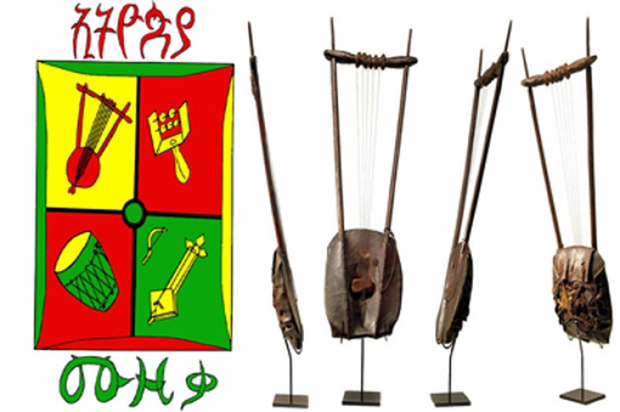Why not Traditional Instruments?

By Tibebeselassie Tigabu
Addis Ababa, Ethiopia - Listening to Mulatu Astatke’s melodious album, of Sketches of Ethiopia, it is easy to recognize the distinct sounds of Ethiopian instruments.
The creator of Ethio-Jazz created his album with his band, Step Ahead, composed of a trumpet player, drummers and Masinko, Kirar and Washint players. The album includes Malian vocalist Fatoumata Diawara. In these albums the everlasting sounds of Azmaris, Gamo, Hager Fiker, Gambella, Derache and the motherland were produced.
Mulatu’s love for Derashe music is deeply rooted in the creation of Ethio-jazz. Researching and exploring Ethiopian musical instruments being what he is passionate about, he identified which instruments are capable of playing more than the five scales.
With the current synthesizing trend of the making of Ethiopian music many of the western instruments such as the different guitar, and drums are not played live but rather synthesized; something many people complain about describing the sounds as monotonous.
Within Addis’ urban music scene, the kirar, masinko, washint and other Ethiopian instruments are often discarded. Most Ethiopian musical instruments are labeled as “traditional “and musicians who follow that trend strictly follow that label.
Why the Ethiopian instruments are labeled as traditional while others are contemporary is the question some critics ask in the urban music scene of Ethiopia. Mulatu believes these music instruments are not well explored and studied and are essentially strangers to their own land. Some composers try to incorporate the music instruments while others leave it classified as traditional.
Mulatu says these instruments should not be used just for the sake of using Ethiopian instruments but should rather be studied and people should be creative in incorporating these musical instruments.
Mulatu studied the different Ethiopian musical instruments, particularly the kirar, which is in five scales and four modes, and with the kirar he created famous jazz songs like Merci, Merci, Merci  (written by Joe Zawinul), Never on Sunday and Summertime.
The aim was to do songs with cultural touches or Ethiopian elements in them. “One thing that has to be questioned is how developed the musical instruments are. The musical instruments should be upgraded and that is what you call the Cultural Revolution in Ethiopian music,†says Mulatu.
Read more at: The Reporter

